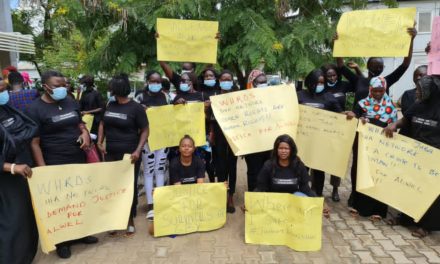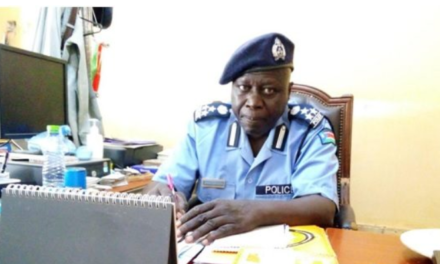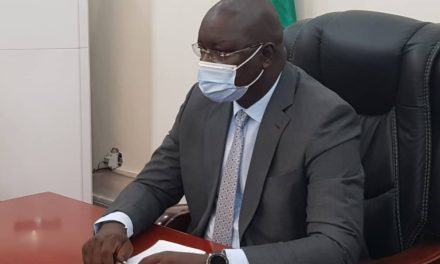
Thousands Still Missing, South Sudan urged to Investigate

“South Sudan’s leaders have been preoccupied with power sharing rather than addressing the gravity and impact of past and ongoing conflict-related abuses,” said Daud Gideon, executive director of Remembering The Ones We Lost.”
Nairobi, August 28, 2020 –
This Sunday, August 30th, the world marks the International Day of the Disappeared. In South Sudan thousands of people are still missing.
Human rights defenders urge the country’s leadership to Investigate, Ratify UN Treaty, Ensure Truth, Justice, and Healing.
“South Sudan should investigate the fate and whereabouts of scores of victims of enforced disappearances and those still missing from years of civil war,” Human Rights Watch and Remembering the Ones We Lost said in a statement today.
Since the conflict broke out in December 2013, the United Nations and other organizations including Human Rights Watch have documented major human rights violations including attacks on civilians and targeted killings, abductions, and detentions by the parties to the conflict. An unknown number of people are still missing.
“People have vanished in South Sudan, and are presumed detained or dead,” said Jehanne Henry, East Africa director at Human Rights Watch. “These unresolved cases are spreading fear and terror among the public. The government needs to acknowledge that people are still missing and take concrete steps to investigate and hold those responsible to account.”
Remembering The Ones We Lost, a local initiative established in 2014, has documented 280 names of missing people since December 2013, some of whom were abducted or detained by security forces and meet the definition of enforced disappearance. These figures, based on interviews with families of victims, represent a fraction of the numbers of those missing in South Sudan. The International Committee of the Red Cross reported in 2019 that over 4,000 people were still missing since the war started and their fate or whereabouts remained unknown.
In many cases, the military and National Security Service (NSS) were implicated in the disappearances. In one example, in January 2017, Dong Samuel Luak, a prominent South Sudanese lawyer and human rights activist, and Aggrey Ezbon Idri, a member of the political opposition, were abducted from the streets of Nairobi, Kenya. More than two years later, the United Nations Panel of Experts on South Sudan issued a report finding that South Sudan’s National Security Service was responsible for kidnapping them and that it is “highly probable” that the two were executed on January 30, 2017.
South Sudan’s government has not investigated the disappearances of the men or ensured accountability for them. Kenyan police opened an investigation, but it was never concluded.
Enforced disappearances arise when people acting on behalf of the government arrest, detain, or abduct people and then refuse to acknowledge the act or conceal the whereabouts or what happened to them. International law prohibits enforced disappearances, which violate fundamental rights to liberty and security, and to be free from torture or cruel, inhuman, and degrading treatment.
The International Convention on the Protection on All Persons from Enforced Disappearances (ICPPED) provides that “no one shall be subjected to enforced disappearance” and imposes an absolute ban on secret detentions. It also requires countries to end abusive practices that facilitate enforced disappearances including arbitrary incommunicado detention, torture, and extrajudicial executions. South Sudan is not a party to the treaty.
International law requires the parties to a conflict to account for people reported missing and provide their family members with any information the authorities have about what happened to them. The United Nations Security Council, in a landmark resolution in 2019, called on parties to armed conflicts globally to strengthen efforts toward uncovering what happened to those missing and giving closure to their families. While some of those reported missing may turn out to have been forcibly disappeared, others may have been abducted or detained by other people, forcefully recruited into armed groups, or fled, perished, or met other outcomes. But in South Sudan, neither the government’s army, nor armed opposition groups, have properly accounted for the missing.
The authorities have also not begun to address Sudanese government abuses during the South’s long war for independence, which ended in 2005. In one example, in the early 1990s, during a brutal crackdown by Sudan’s army on the civilian population in the Equatoria region, at least 300 civilians were executed and another 230 people including clergy, aid workers, and members of Southern security forces were arrested and never accounted for. These abuses continue to have lasting impact on families of victims today and enhance impunity. South Sudan should reckon with past abuses, including those committed by the Sudanese government and militia, and Southern rebel forces in the territory that is now South Sudan, the groups said.
The authorities should take immediate, concrete steps by ratifying the International Convention for the Protection of All Persons from Enforced Disappearance and end the practices of unlawful and secret detentions by its security forces. They should also set up the transitional justice bodies provided for in the 2015 and 2018 peace agreements. They include a Commission for Truth, Reconciliation, and Healing; a Compensation and Reparations Authority; and a hybrid court, with officials from South Sudan and elsewhere in Africa, to address abuses from the recent conflict period.
These envisioned bodies have potential to help stem the cycle of violence and bring needed redress and healing to victims of abuses committed since December 2013, but there has been no progress to establish them, despite years of pressure.
“South Sudan’s leaders have been preoccupied with power sharing rather than addressing the gravity and impact of past and ongoing conflict-related abuses,” said Daud Gideon, executive director of Remembering The Ones We Lost. “Another year should not pass without justice for the countless missing and their families, who continue to suffer in vain.”





















Recent Comments